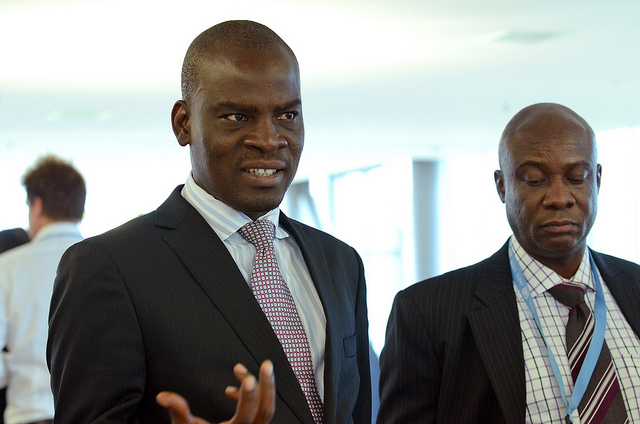By Nana Appiah Acquaye, Accra, Ghana
The Minister of Communication Harruna Iddrisu has defended the withdrawal of the Data Protection Bill from the House of Parliament.
The Minister explained that during a meeting with the joint committee, the Attorney General and Minister for Justice and other stakeholders over the Bill, specific challenges had arisen.
He said withdrawing the Bill would enable the ministry effect the necessary corrections after which it will be re-laid in the House. The Bill was first laid in the House by the Minister on November 29, 2010 and referred to the joint committee on Communications and Constitutional Legal and Parliamentary Affairs for consideration and report.
The joint Committee presented its report on March 23, 2010. The House was scheduled to have begun considering the document last week but just before they settle down to begin the sector Minister came in with the withdrawal notice in accordance with section 132 of the House standing orders.
The Bill aims to provide for the protection the privacy through the regulation of the processing of information related to individuals including the process by which the information is obtain, held, used or disclosed and to provide for related matters. It also sought to set out the rights and responsibilities of data controllers, data processors and data subjects in relation to personal data. It was also to deal with personal data which relates to data subjects.
Recognising that every Ghanaian has the right to privacy with respect to the processing of personal data, the Bill will activate or give meaning to Article 18(2) of the 1992 constitution. In essence, the absence of legislation on this matter is an infringement to the right to privacy, a memorandum to the bill stated.
The Bill provide for data protection principles and enjoins a person who processes data to take into account and give effect to the data protection principles which include accountability, lawfulness of processing, specification of purpose to be compatible with the purpose of collection.
It states that a person is not to process personal data unless the consent of the data subject is obtained, the purpose for which the personal data is processed is necessary for contractual purpose, and the purpose for the processing is authorized and is to protect a legitimate interest of the data subject
